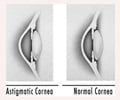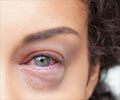Researchers from University of Florida and University of Pennsylvania have successfully able to restore vision among patients with a rare form of congenital blindness using gene therapy.
Researchers from University of Florida and University of Pennsylvania have successfully able to restore vision among patients with a rare form of congenital blindness using gene therapy, thus showing that the treatment is fully safe.
In Leber Congenital Amaurosis type 2 disease, photoreceptor cells cannot respond to light because a gene called RPE65 does not properly produce a protein necessary for healthy vision.In the study involving one woman and two men between 21 to 24 years old, the researchers used an adeno-associated virus - an apparently harmless virus that already exists in most people - to deliver RPE65 to a small area of the retina.
The results showed that not only were there no ill effects other than routine post surgical soreness, the vision in the subjects' treated eyes was slightly improved in dim lighting conditions.
"The patients report seeing brighter areas and perhaps some images, but basically the message is that this is treatment is fully safe," said William W. Hauswirth, Ph.D., a professor of ophthalmology and member of UF's Powell Gene Therapy Centre and the UF Genetics Institute.
"One thing we did not do is suppress the patients' immune systems, which was done in two other LCA clinical trials that were under way," said Hauswirth, who began studying the adeno-associated virus as a vehicle to deliver genes into living animals more than 30 years ago.
"Theoretically, the idea was that it might be necessary to suppress the immune system because we are using a vector that might activate the body's defenses and cause a harmful response.
Advertisement
"The study has partially restored vision in three young adults, and it demonstrates that gene therapy can be effective in treating human vision disease," said Paul A. Sieving, M.D., Ph.D., director, National Eye Institute of the National Institutes of Health.
Advertisement
Source-ANI
SRM













